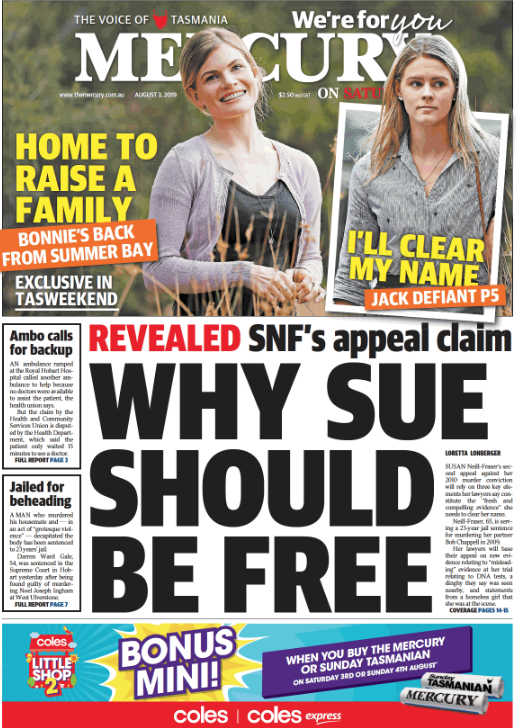Andrew L. Urban.
Sue Neill-Fraser and her family have responded with guarded optimism to the lodgement of appeal grounds with the Supreme Court yesterday (2/8/19), the first step towards the hearings that will determine whether her 2010 murder conviction was wrong and should be quashed. See yesterday’s report.
Neill-Fraser’s daughter Sarah Bowles said her mother had been told that the papers were lodged and was glad, but with the history of delays and complications, she was quietly optimistic. Sarah and her sister “Emma and our whole family is very lucky to have these wonderful lawyers (Paul Galbally and his team, Tom Percy QC and his team) but we don’t really know what to expect.” Or when to expect it … a hearing date is yet to be set, and there are indications that it may not be too far away. “The family certainly hopes so,” Bowles told wrongfulconvictionsreport.org

The Mercury, August 3, 2019
Neill-Fraser was convicted of murdering Bob Chappell on Australia Day 2009, but Meaghan Vass, the eye witness whose DNA was found at the crime scene, has recently (March 10, 2019) stated on 60 Minutes and in an affidavit to the court that Neill-Fraser was not the killer. This will be the leading (and compelling) ground on which the appeal will be built.
Three judges will be assigned to hear the appeal.

